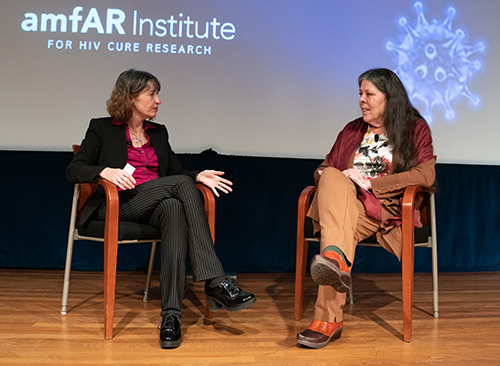Researchers Report New Case of Spontaneous HIV Cure
By Rowena Johnston, Ph.D.
A woman in Argentina, dubbed “the Esperanza patient” after the town where she was born, appears to be a new case of a spontaneous cure of HIV. The 30-year-old woman was first diagnosed with HIV in 2013 and gave birth to an HIV-negative child in March 2020. Researchers report that an exhaustive search of 1.5 billion of the woman’s cells failed to turn up a single intact virus capable of replicating. Fittingly, “esperanza” is the Spanish word for hope.
An exhaustive search of 1.5 billion of the woman’s cells failed to turn up a single intact virus capable of replicating.
The study, reported in the November 16 issue of Annals of Internal Medicine, was led by researchers at the Ragon Institute of Massachusetts General Hospital, MIT and Harvard, in Boston. Authors of the study include several amfAR grantees.

Some of the same researchers, including Drs. Xu Yu and Mathias Lichterfeld, reported last year on the case of the “San Francisco patient,” Loreen Willenberg, who was the first person believed to have naturally cleared her HIV infection. Their groundbreaking study of elite controllers (ECs) – the small group of people who can control their HIV without medications – was included by the journal Science in the top ten breakthroughs of 2020. It showed that the virus in ECs is more likely to be found in “gene deserts,” regions where the HIV remains tightly locked down, unable to replicate, and that in Willenberg’s case, known as extraordinary elite control (EEC), no intact viruses were found at all.
“We now have two cases where people seem, for all intents and purposes, to have cleared the virus,” said Dr. Rowena Johnston, amfAR vice president and director of research, in an interview with US News and World Report. “How many of these people are out there? It’s impossible to believe there are only two, and these researchers found both.”
The challenge for researchers is to determine exactly how the immune systems of these two “exceptional controllers” are able to mount such an overwhelming attack on HIV and how to replicate the same immune response in non-controllers.
Share This:
